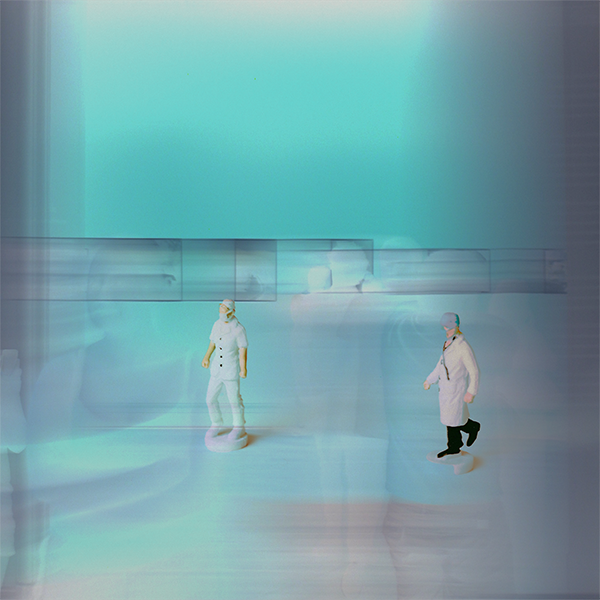How The Trinity Makes a Decision
Why was the Son sent by the Trinity, and not the Father or the Spirit?
Did the Son draw the short straw?
If the Son wasn’t just the unlucky one, how was such a decision made (if we can speak of decision making in the Godhead of the Trinity in such human ways)?
Some have said the Son, in being sent by the Father, reveals an eternal willingness, or disposition, to submit to the Father. They imagine an eternal divine counsel between the Father, Son, and Spirit where it is decided the Son would be sent for our salvation. But for these complementarians, this “decision” reveals the Father’s authority and the Son’s obedience.
But are decisions always made based on authority? Is that really the only option for finding a common agreement?
Does this reveal a lack of imagination when it comes to making decisions among some complementarians?
Could there not be a more mutually based divine decision making process? And if so, if we had an imagination for such a decision-making process, what would that say for leadership in our churches, and between men and women, and between husbands and wives?
Are decisions, in the Trinity, our Churches & homes based on authority or mutuality? Share on XA Trinitarian Conversation
Imagine listening in on the Trinity’s conversation about who should be sent (for this is roughly how the ancient church thought of these things).

The Trinity, by Andrei Rublev
The Father asks of the Son and the Spirit, “Now that we have decided, not only because of our love and desire to save humanity from the sin and folly they have fallen into, but that it would not be fitting to let our glorious creation fall into nothingness through our inaction, who of us should be sent into the world?”
Immediately the Father sees the hands of the Son and Spirit shoot up, and notices his own raised arm, making three.
Should the Spirit be Sent by the Trinity?
“Well,” says the Son, turning to the Spirit, “it would make sense for you to be sent. You are the Spirit of life, having been breathed in humanity at the first. It would be fitting for you to breathe upon them again, that the dry bones might live. And you have already dwelt among humanity when you anointed kings, and priests, and prophets, that they would speak and know our one will. And you have been our glorious presence in cloud and fire before Israel, filing the tabernacle and temple with our eternal glory. Indeed, it is through you that our glory fills the whole world.”
And the Father added to the Spirit, “Truly you have blessed humanity in so many ways. And because you proceed from both I and the Son it would be most fitting for you to be sent by us into the world for the salvation of all humanity.”
“But perhaps,” the Father continued, “perhaps, humanity would be confused that you, the Spirit of God, who has taken so many temporary forms to manifest our presence, perhaps humanity would be confused that you would be personally united to a human. Would fickle humanity worry that we also are erratic and that the promised salvation will only be another temporary measure? We have already promised humanity that you would be poured out on all flesh, so for you to be joined personally to one particular human might make them doubt our words of promise. We must find a way that, while necessitating faith, will not burden humanity with uncertainly about the permanence of our salvation.”
The Spirit, always of one mind with the wisdom of the Father and Son (for the Son is the wisdom of the Father), nods in agreement that it would not be most fitting to be sent.
Should the Father be Sent by the Trinity?
The Father spoke again.
“I long to be sent, that all might become children of God. I long to expose the lie that mastery and dominance are marks of fatherhood. It must be revealed that true love, even unto sacrifice, is one with power using it for the benefit of those without it; that true authority is not something to be grasped or held onto but used for the sake of others, elevating others at all costs. We created humanity in our image in order that they might share in our authority and love. But now they abuse one another and destroy all of creation.
“Let it be that I am sent to show and offer the powerful love of a father.”
The Son and Spirit, so moved by the passion of the Father and the plight of humanity, and indeed especially women and those on the margins suffering under the oppression of those who abuse power, and Son and Spirit in their longing with the Father that all would know the love of true fatherhood, they almost agreed to send the Father.
But the Spirit responded, “You have spoken what all of us hope and long for, that humanity is lost in a war of sin, abusing the gifts we have given them. But, you being Father, longing to reveal all that fatherhood should be, can not become human, born of a woman. For then you would also be a son, and not always and eternally Father. Certainly humans can be both sons and fathers, or mothers and daughters, but you are Father from all eternity just as the Son is the Son from all eternity. It would not be fitting for you to be sent from us when we truly are from you, the Son eternally begotten from you and I eternally proceeding from you and the Son.”
And the Son added, “While you long to reveal the true love of humility as true fatherhood, it would not be truly humble for you to represent yourself and speak of yourself. Humanity will either submit to you out of fear, misunderstanding you as an angry god demanding allegiance, or fault you for a feigned humility secretly seeking control over them. Humanity cannot see you lest they die from your perfectly holy love, obliterated by their own misunderstanding and sin. Our approach to humanity must be even more subtle and persuasive, witnessing to another way of life, and leaving open a truly human response?”
The Father, filled with an infinite love of humanity now matched with an infinite grief that he could not be sent, agrees to the wisdom of the Son and Spirit.
Should the Son be Sent by the Trinity?
The Father then turns to the Son.
“Truly you have always been Son, through whom all things are created. It would be fitting that through you all things would be re-created. And if you are born of a woman you would still be eternally Son, and the woman would be the mother of God. If you were sent in the flesh, purifying and vivifying humanity, then you and I would still be able to send the Spirit onto all flesh, fulfilling the Spirit’s longing to be sent by us also.”
The Spirit then said to the Father, “And if the Son is sent by you, then you, while not being sent, would be known as the one who loves without measure, not withholding anything, but sending both the Son and myself, and in that way you too, in a sense, will be sent through us, into the world that all might become children of God.”
And so, it being decided by the Father, Son, and Spirit, in all equality, the Son, for the joy set before him, endured the cross through his incarnation, became flesh that God could die, so that all humanity might re-join the eternal love of the Father, Son, and Spirit.
Further Reading on the Trinity, Authority and Submission
See also:
- Three Failing Strategies Being Used to Redefine the Trinity
- Don’t Crash the Trinity: The Form of God and Form of a Servant
- Eternal Submission? Thinking (all the way) through the Issue



